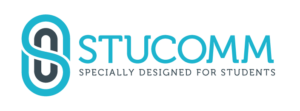Are companies in the Netherlands doing enough to inspire students during their internships?

In a short series, StuComm will speak to students, professors and employers in Holland alike to ascertain how educational institutions are preparing their students through internships for the challenges of tomorrow.
To conclude the series we spoke with Ronald Kouvelt, founder of StuComm. StuComm have employed five interns a year since starting out in 2014. Interns have played important roles growing the business, and have ensured that StuComm maintains it’s finger on the pulse of the evolving needs of today’s students. This has proven vital to StuComm’s success.
From your experience speaking with students across the universites you work with, how common is it for them to have internships?
For Universities of Applied Sciences it’s common as it’s part of their course. They’re more focussed on training students to work for a company. For other undergraduate students it’s less common.
How often would you say these opportunities are paid?
Most opportunities are paid but very it’s generally very low. Average pay is probably €400 a month.
What are the factors holding more students at research universities back from completing their internships?
The fact internships are not a compulsory par for students to complete their degree doesn’t help. Perhaps the importance of internships is also not promoted as well as it could be. There are also financial implications as internship extend the length of students courses which then costs them more money. We sometimes prefer students from Universities of Applied Science because they have more experience of the work field. Research students are often totally new to the workplace and need extra support just to familiarise themselves with an office environment. It’s a way different starting point.
What could companies do more to encourage more students to complete internships with them, and what are the best ways for companies to reach students?
Getting the word out is crucial. A lot of companies are trying to reach universities but are often unaware of how to do so as not every HBO or research university has a career service.
Finding the right person at the university is therefore crucial. As we’ll come onto later our new Talent feature is a brilliant way of creating a match between an internship opportunity and a student.
If you could implement a change to the laws governing internships across the Netherlands, what are the three changes you’d make? First I would look at the cost structure for the students. We should stimulate students more through better salaries that can allow them to justify committing more time to an internship. For most studies I would make it compulsory for students to complete an internship. I would make it part of their studies that you have to find an internship. I would also enforce universities to put in place a strategy for their alumni that provides better connections to the jobs market.
Finally, tell us about StuComm’s new Talent feature. How is it going to solve some of the problems you’ve mentioned?
With the Talent feature we’re going to match companies with students who are looking for jobs as part of their degrees or on the side. We’ll only provide students with the top five matches using our technology intelligence. We’ll show the students the companies that are interested in them rather than the other way round which is the most common scenario currently for students.
On registration, students will be provide a lot more detailed information about their interests and expertise which our technology can then use to find the perfect match. Students often have interests and expertise that can be very useful for companies which are often overlooked though current screening methods. Our technology will ensure this is not the case.
By looking deeper into a students profile we’ll be able to find much better matches for everyone. This will improve the capabilities of the careers services, the students to get higher level job opportunities, and for companies to find the perfect match for their vacancies.
The opportunities provided by StuComm, are a great example of how to provide and manage internships in the Netherlands so that everyone along the chain benefits from the experience. Students are engaged, valued and inspired whilst the company benefits from their enthusiasm, commitment and expertise.
This example is very much in line with the beliefs of the students we spoke with, and the professor we interviewed in the previous piece. From this sample group, we would not be wrong to therefore assume that the whole of the Netherlands is unanimous in its frustrations at the current internship system and clear about the changes needed to be made. That being said, there is clearly a strong case for change, and a clear understanding of what that change should look like. To summarise, we would recommend the following changes to the Netherlands current internship system for students, faculty and companies to follow:
Students
- Be clear about the skills and expertise they can offer an organisation and the types of opportunities their interested in
- Push for greater involvement in over the structure of their internships
Universities
- Where possible make internships a compulsory part of students course
- Introduce better connections with the alumni
- Improve the promotion of opportunities
Companies
- Improve their promotion of opportunities
- Increase pay to stimulate students further and increase their commitment
- Provide tasks that are varied and testing to increase students sense of purpose
In the last part of the series we will tell you more about the Talent Feature project. We will discuss how it works and how this solution will influence the Dutch job market. Can’t wait until the next article and wanting to know more about the Talent Feature? Contact us for more information!








